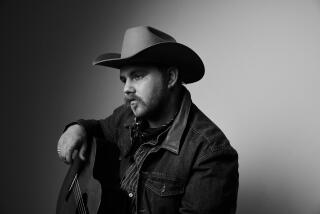Allen Toussaint’s ‘American Tunes’ album caps a distinguished career
Allen Toussaint’s email to producer Joe Henry arrived unexpectedly last fall. The message from the veteran New Orleans producer, songwriter, pianist and arranger was short and to the point.
“He wasn’t a man who used e-mail conversationally,” Henry said. “He responded like a man who was sending a telegram and paying by the word. For him to write me out of the blue was very unusual.”
Toussaint, in Switzerland at the time, was writing to express a recent obsession with playing “Lotus Blossom,” a work from composer Billy Strayhorn.
The track is part of Toussaint’s “American Tunes” album, released June 10, in which Toussaint applies his distinctive pianistic touch to a choice selection of songs by Duke Ellington, Fats Waller, Louis Moreau Gottschalk, Professor Longhair and Paul Simon, among several others.
The goal with “American Tunes” was to create an extension of the work Henry and Toussaint had done in 2009 on the album “The Bright Mississippi.” On that collection, Toussaint interpreted compositions by jazz greats including Jelly Roll Morton, Django Reinhardt, Thelonious Monk, Sidney Bechet, Ellington and Strayhorn.
“We were both intent on expanding that conversation, which was complete unto itself,” Henry said. “We were not interested in simply creating a Part 2.”
Like many who knew Toussaint personally, or just through his music, Henry was stunned to receive word on Nov. 10 that Toussaint had suffered a heart attack and died at age 77 shortly after a performance in Madrid.
His death makes the arrival of “American Tunes” all the more poignant, both for those who worked on it and for fans of the extensive body of work he left behind as one of the prime architects of New Orleans R&B, funk and rock music over the last 60 years.
He wrote, produced, arranged and/or played on a number of hits. Among them: the Pointer Sisters’ “Yes We Can Can,” Glen Campbell’s “Southern Nights,” Lee Dorsey’s “Working in the Coal Mine,” Ernie K-Doe’s “Mother-in-Law” and “A Certain Girl,” Benny Spellman’s and, later, the Rolling Stones’ “Fortune Teller,” Irma Thomas’ “It’s Raining” and the instrumental “Java,” which trumpeter Al Hirt turned into a pop hit.
No one suspected during the “American Tunes” recording sessions last year that it would turn out to be Toussaint’s final musical statement.
In fact, just after those sessions wrapped, before heading to Europe for a series of performances, he was given a clean bill of health by his doctors, one of his close associates told The Times after his death.
What started with Toussaint spotlighting the songs of his New Orleans role model, Henry Roeland “Roy” Byrd, aka Professor Longhair, soon expanded into a far-reaching exploration of music from many of the greatest American composers of the previous century and a half, most of them African American.
“We’d been trying to imagine how to do that authentically for the past six years,” Henry said. “Beyond that, there was something absolutely cosmic to me to the fact that for everybody we wanted to be involved, there was really only one window in the foreseeable present time that we all might be in a room together.
“After he passed, I was keenly aware of how close we came to not getting there,” he said. “I was as gratified as I was rattled by that.”
Singer Rhiannon Giddens echoed Henry’s sentiments. She brought her broad-based roots in African American string band music, American country and folk, Celtic music and operatic singing to bear in her vocals on two Ellington compositions — “Rocks in My Bed” and “Come Sunday.
“I knew he was this mythic figure, but it was so neat to meet him,” she said in a separate interview. “It was amazing to me to take in: Here’s this incredible individual, who was obviously a very spiritual man, and when I walked in, oh my God, he set me at ease immediately. The whole recording studio was filled with that energy.
“That’s how I interacted with him: Here’s an artist of the highest order, and I get to do this thing and try not to mess it up.”
Henry recalled a moment after Giddens had sung “Come Sunday.” She expressed concern that she sounded too classical and not earthy enough.
“Allen’s response was immediate and heartfelt on behalf of African American composers,” Henry said. “He said it’s important that people understand that African American music is so much more than just gut-bucket blues, and that there is a long history of African American singing classical interpretation of the spirituals. And he said that the way she had sung it was absolutely perfect.”
The album also gave Toussaint the opportunity to reconnect with composer, producer and multi-instrumentalist Van Dyke Parks, who during his stint as head of talent development at Warner Bros. Records in the 1970s brought Toussaint to the attention of label president Mo Ostin. Parks plays on two cuts, one of which is his arrangement of Gottschalk’s “Danza.”
“I cannot tell you how moved I was,” Parks said. “It absolutely was a defining moment for me, and I was lucky to be there … to be part of that adventure.”
The other is perhaps Toussaint’s most directly autobiographical song, “Southern Nights,” which he wrote after Parks challenged him decades ago to “write something that defines you, that you want people to associate with you when you die.”
Then there is the album’s closing number, Simon’s “American Tune,” which Simon wrote in 1973 during the height of the Watergate scandal.
Simon’s song questioned the state of the union and Toussaint picked up on its latter-day relevance and began including it in his shows after Hurricane Katrina devastated New Orleans and much of the Gulf Coast in 2005. He recorded a version for a 2007 Paul Simon tribute album.
I don’t know a soul that’s not been battered
I don’t have a friend who feels at ease
I don’t know a dream that’s not been shattered
Or driven to its knees
But it’s all right, it’s all right
The song, Toussaint told former Times pop music critic Robert Hilburn, who is at work on a Simon biography, “is one of the finest ever, of anyone’s songs, anywhere.
“’He said things in that song [that were so profound] you could [spend a] school semester on that song, I would think, from what it says, and what he saw,’ ” Toussaint told Hilburn.
It’s the only song on the new album that includes Toussaint’s voice as well as his piano playing, an element Henry felt was crucial to the collection.
“It turns out it was the next-to-last thing he ever recorded in a studio,” Henry said. “When we sat down to listen back to it, many of us were teary-eyed. Allen was critiquing his own vocal with a hard eye, as he always did, and I’m sitting there barely able to speak.
“I’m still recovering from what it was to stand in that room and hear that in real time. I’m so touched by his vulnerability in reading that song, his choices as a piano player, and what he adds as sort of an obbligato sidebar commentary with his playing.
“In my experience with him over 10 years,” Henry said, “he was grace-filled and trusting in a grace that’s bigger and knows more than we do. I don’t know of any musician who doesn’t want to get there — not only as a musician, but as a human being.”
For coverage on Classic Rock, join us on Facebook.
More to Read
The biggest entertainment stories
Get our big stories about Hollywood, film, television, music, arts, culture and more right in your inbox as soon as they publish.
You may occasionally receive promotional content from the Los Angeles Times.









